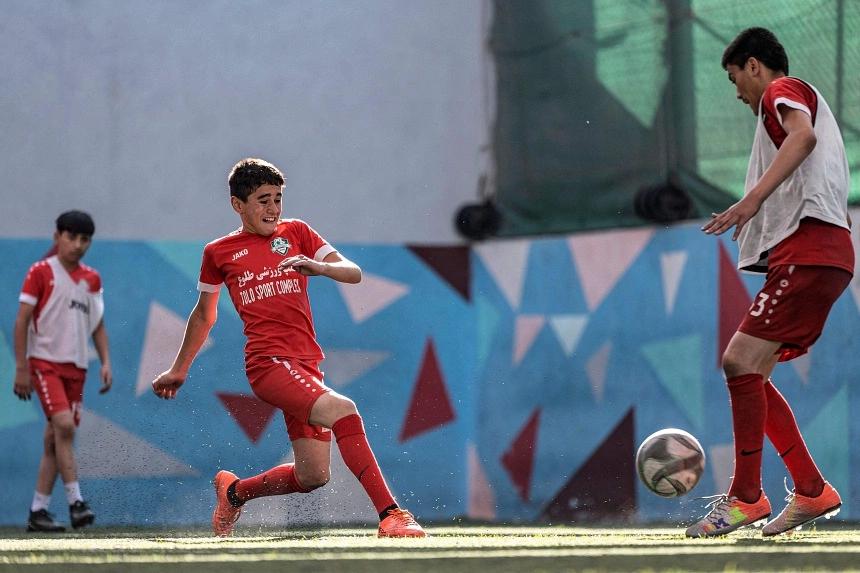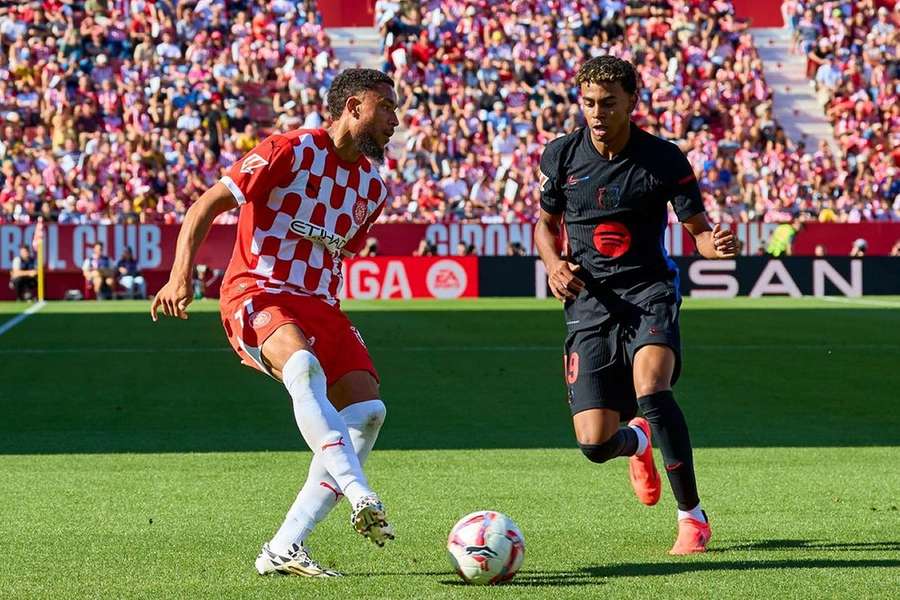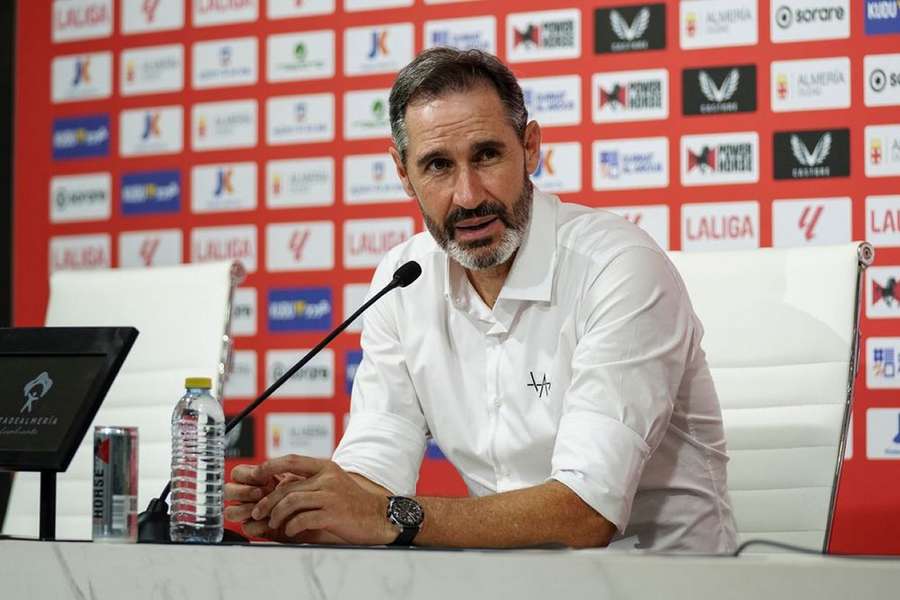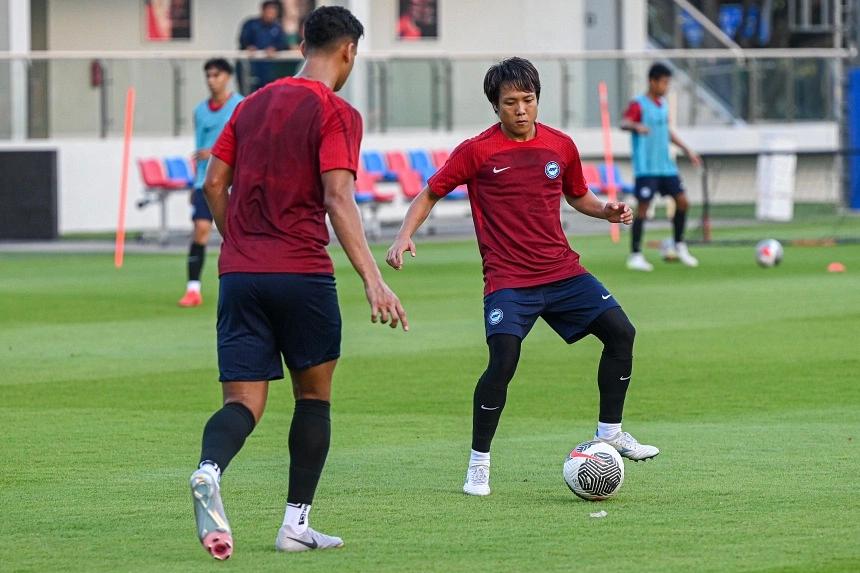Afghans inspired by historic journey of Futsal World Cup achievement
The 21-year-old felt a surge of pride as Afghanistan competed in its inaugural Futsal World Cup in Uzbekistan in September, facing off against powerhouse teams such as Argentina, Paraguay, and Ukraine.

“We feel extremely happy, it helps us to have a dream, and understand that nothing is impossible in our lives, and if we try hard for something we can achieve it,” he told AFP, hinting at his goal of also representing his country one day.
In the group stage, Afghanistan beat Angola 6-4, suffered a hard-fought loss to the 2016 champions Argentina 2-1, and lost to Ukraine 4-1. However, they still booked their place in the last 16 of the showpiece event.
On Sept 25, Afghanistan were knocked out 3-1 by Paraguay after extra-time. Despite the loss, its men in white and red in Tashkent met with applause from hundreds of fired-up Afghan fans in the stadium, as seen live on a local Afghan television channel.
The World Cup campaign might have ended, but for young Afghans like Mustafa back home, the steady rise of the Afghan team has been a powerful motivator.
“When you see your team, with the national flag and national anthem reach to the top, it gives motivation to be organised and disciplined and chase your goals,” Mustafa said.
As the Taliban government has not been recognised by any other state, Afghanistan’s national athletes competing in international events carry the tri-colour flag adopted by the former government and now banned by the Taliban.
As for the national anthem, it has effectively been banned too, as the Taliban government has prohibited playing music in public, deeming it un-Islamic.
Still, “participating in the World Cup is a historic achievement. To be in the round of super 16 is a proud moment for all of us,” trainer Mahboob Saeedi said.
The infrastructure for the game, however, does not match the passion for it in the war-torn country, which is facing one of the world’s worst humanitarian emergencies.
Professionals lament inadequate investment to provide standard grounds and finance the sport.
“We have great talents in Afghanistan, but we lack sports facilities and buildings, so we face a lot of problems,” said Abdul Ahad Rustamzada, manager of the Tolo sports complex.
“Youths cannot pay the fees (for training), yet we try our best to support them,” the 37-year-old told AFP.
Taliban authorities have effectively banned women from sports and the country has seen the gradual implementation of an austere version of Islam that has forced entertainment out of public spaces.
But recent performances from Afghan athletes in sports like cricket, futsal and martial arts offer rare moments of joy in the otherwise sombre country. “In the current circumstances, Afghanistan making it to the super 16 is a big achievement,” Rustamzada said. AFP
RELATED STORIES






LATEST NEWS







